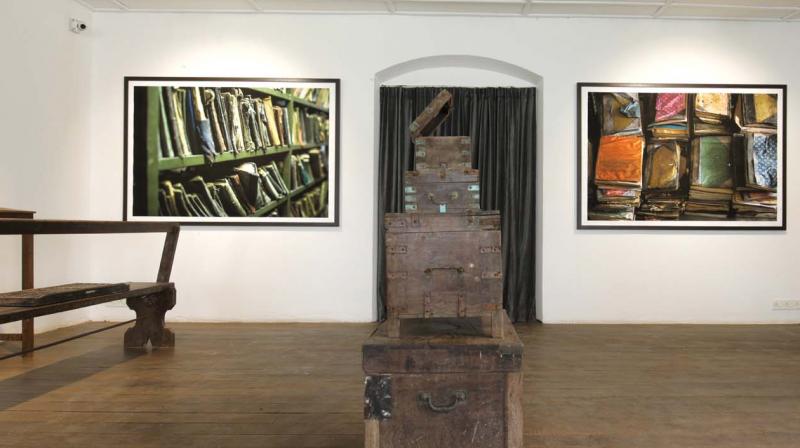living in the book world
Shubigi's exhibit area at Aspinwall House in Fort Kochi showcases three works: an installation, a set of photographs and a video.

In a world that is increasingly turning digital, Shubigi Rao recalls her times as a teenager spending hours reading rare and old books at her parents’ quiet library. What’s more, the artist-writer’s work at the Kochi-Muziris Biennale delves into a part-fantasy past in which ideas so gathered were sneaked away.
“I lived in different books,” notes the Singapore-based artist about her days of growing up in West Bengal’s hilly Darjeeling, before moving to Delhi. “It’s where I began believing in a shared humanity.”
This year, Shubigi spent several weeks in this Biennale city, researching and developing an installation that immerses viewers in the texts, images, and verbal accounts of a world where books are the most valuable commodity. “For this project, I created a mythical world from existing letters and records from the libraries and archives, besides my interactions in Kochi,” she notes.
The narrative revolves around a text discovered by a colonial officer, S Raoul, that maps the trade route of book smugglers. While local librarians and writers play the roles of the smugglers and their descendants, their journey includes real sites in the region. “By creating this semi-fictional history of smuggled texts and ideas, I discuss topics like displacement and cross-cultural experience. One that is as much about the movement of ideas and language as it is about the political and economic legacies of power structures,” says the 43-year-old artist, who was born in Bombay.
Shubigi’s exhibit area at Aspinwall House in Fort Kochi showcases three works: an installation, a set of photographs and a video. Thus, the room is divided into three: an unreadable reading room, indecipherable and fading maps and lastly the ‘Pelagic Tracts’ (video installation).
Shubigi’s interest in art includes archaeology, language, libraries, cultural genocide, contemporary art theory, neuroscience and natural history. Her work involves layered installations comprising ideological board games, drawings, pseudo-science machinery, metaphysical puzzles and archives.
The systematic destruction of libraries and censorship are important aspects of Shubigi’s artistic practice. “The moment you attack culture, you take away a people’s purpose and their link to the land; you strip them of what it is to be human,” Shubigi notes. “If our history is anything to go by, all books are predestined ashes.”

